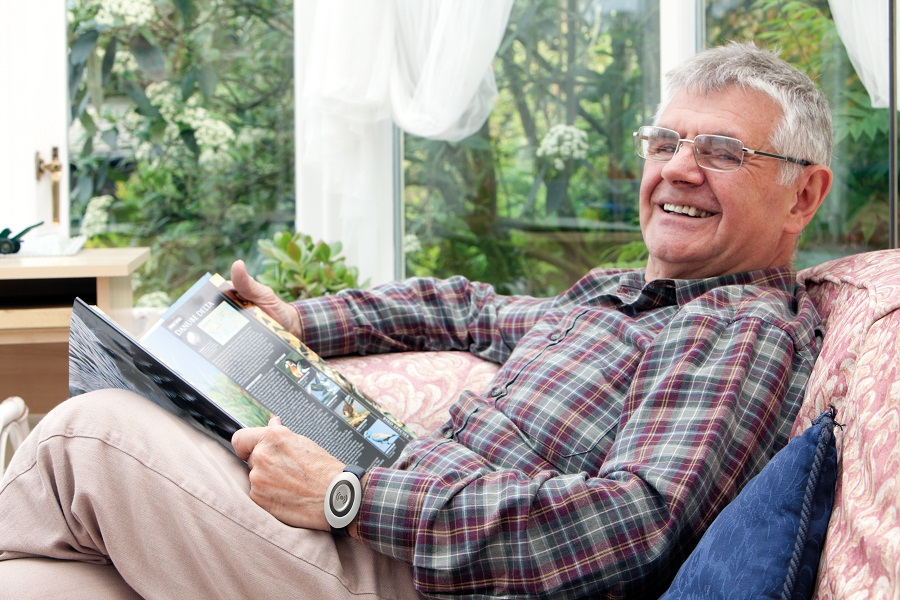Coping with living alone
Loneliness is a huge issue which affects people across the UK all year round, but it can become even harder during the winter months and particularly during the festive period.
Loneliness in the elderly has a significant impact on both quality of life, and physical and mental health. Research by Age UK shows that one in four older people feel they have no one. Of these, 39% said they felt lonely, and a fifth said they felt forgotten about. On top of this, a huge 50% of people aged 25-44 admitted to being worried about feeling lonely in later life.
Loneliness should never be underestimated. Not only can it make life miserable, it can have a serious impact on our health, making us more vulnerable to illness and disease. That’s why it’s important to see the signs of loneliness and seek help, so that you can make the absolute most of later life.
Seek advice
You may find that the reason you’re lonely is simply because you have no one to turn to. You may feel as though you have no friends or family left, and that you simply don’t have anyone to reach out to. In this case, it’s important to realise that there are people out there that want to spend time with you, and make sure you’re getting a good quality of life. Age UK offers a service called befriending, which includes things such as home visits and telephone calls for people who are feeling isolated. As well as this, Age UK also provides opportunities for people that are feeling lonely to attend lunch clubs, exercise classes, coffee mornings and volunteering experiences. Never be afraid or embarrassed to pick up the phone and see what others are willing to do to help. Whether it’s simply a chat on the telephone or a morning out with other likeminded people, you may just find the company you need.
Socialise at home
If you find it hard to get out of the house due to mobility issues or something else, it can be nice to have people over to your place instead to ensure you’re getting the conversation and company you need. Reach out to neighbours and see if they’d be interested in any of the following:
- Film nights
Invite neighbours or friends round once a month for a film night. You can swap DVDs, have themed movie nights (a night of Westerns, Hitchcock classics, musicals and more), and enthuse about your love of cinema.
- Dinner parties
Nothing beats getting together over a delicious dinner. How about hosting a monthly supper club? Invite friends and family round to sample your cooking. You can ask guests to bring a dish of their own, or have themed dinner parties where you rustle up dishes from around the world.
- Book clubs
If burying your nose in a good book is more your thing, why not turn it into a regular book club? You can invite friends, family, neighbours, put up a notice in your local library, in the paper, or on a local listings site and you’ll soon have a house full of book lovers to discuss your latest favourite reads with.
- Card games
Poker, bridge, whist – card games are great for socialising. Whatever your favourite, you and your friends can enjoy a regular game over some drinks and nibbles. All you need is a pack of cards and you’re ready to go, making it one of the most affordable get-togethers going.
Need extra help?
If you find that you are still struggling to cope alone, then there is help out there for you. Talk to friends, family, or your doctor about your options. A move into sheltered or part-sheltered housing can address health issues you may be having, as well as putting you in day-to-day contact with carers, support staff, and fellow residents.
It could be that your health leaves you feeling vulnerable at home, but full-time care isn’t needed. In this case a personal alarm can help. Personal alarms are worn around the wrist or neck, allowing you to press a button that’s always at hand, for 24/7 access to instant assistance in the event of a fall or medical emergency. This can offer great peace of mind and leave you feeling less isolated within your own home.
A personal alarm is a small device that you wear on your body, either in the form of a necklace or bracelet, when in the home. It’s linked to a speakerphone base unit by your telephone, and automatically dials for help when the button is pressed. Personal alarms are popular because they give those living alone the peace of mind of knowing that help can be there quickly in an emergency. Even if you cannot reach the base unit to speak to an operator, the emergency response centre will be able to contact nominated friends or family to come and check on you, or if it is really urgent, the emergency services.
The most important thing to remember when you live on your own, is there are plenty of people that care around you. Don’t be afraid to appeal to family and friends if you’re feeling down, or to ask for help from a neighbour when you need it. Even though you live by yourself, you needn’t be alone.
If you live alone and would like to know more about how you could benefit from a panic alarm, visit the Age UK Personal Alarms website www.ageuk.org.uk/alarm or give us a call on0800 030 4814.
More than a million older people say they haven’t spoken to a friend, neighbour or family member for over a month and last year nearly 400,000 people aged 65 and over said they were worried about being lonely over Christmas.
That’s why Age UK is running its No One Should Have No One at Christmas campaign, which aims to make sure that more lonely older people have someone to turn to in the festive season.
As part of the campaign Age UK has partnered with John Lewis to help raise awareness of the issue of loneliness and make a difference to older people, who may be alone at Christmas time.
For more information visit: www.ageuk.org.uk/christmas
Age UK Personal Alarms are provided by Aid-Call Limited.
Latest posts by Sally - Silversurfer's Editor (see all)
- The best of Debbie Reynolds - March 31, 2025
- Peter’s Gardening Tips for the month of April - March 31, 2025
- Stronger bones after 50: How to ensure you’re getting enough calcium - March 28, 2025
- Do you refer to it as Mothering Sunday or Mother’s Day? - March 27, 2025
- Embark on a SixStar Cruise - March 26, 2025




















